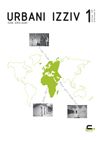Venturing into unknown territory: Strategic spatial planning in post-communist cities
Venturing into unknown territory: Strategic spatial planning in post-communist cities
Author(s): Sasha TsenkovaSubject(s): Social Sciences
Published by: Urbanistični inštitut Republike Slovenije
Keywords: strategic planning; transition; post-communist cities; planning; public participation; sustainable cities
Summary/Abstract: Recent planning practice in post-communist cities indicates a growing interest in strategic spatial planning. In their search for new planning paradigms and more flexible approaches to city planning, municipalities in post-communist cities have embraced strategic planning as a way to involve residents, the business community and various stakeholders in defining a vision for the future. Drawing on the experience of six capital cities – Prague, St Petersburg, Vilnius, Sofia, Budapest and Riga – this article outlines the essential characteristics of the process (planning) and the product (a strategic plan). It establishes clear links between the strategic development process, its institutional framework and the hierarchical structure of goals, objectives and actions. Using a framework for strategic spatial planning in the context of rapid economic, social and governance change, the study evaluates the results of the process, focusing on “what” and “how” in the complex reality of planning. The framework applies the traditional strategic planning model, which establishes relationships between past, present and future to design alternative strategies for plan implementation, but in a much more unstable and unpredictable institutional environment. The research highlights the responsiveness of strategic planning to transition imperatives and its ability to define contextually appropriate multidimensional strategies for the spatial development of post-communist cities.
Journal: Urbani izziv
- Issue Year: 22/2011
- Issue No: 1
- Page Range: 83-99
- Page Count: 17
- Language: English

